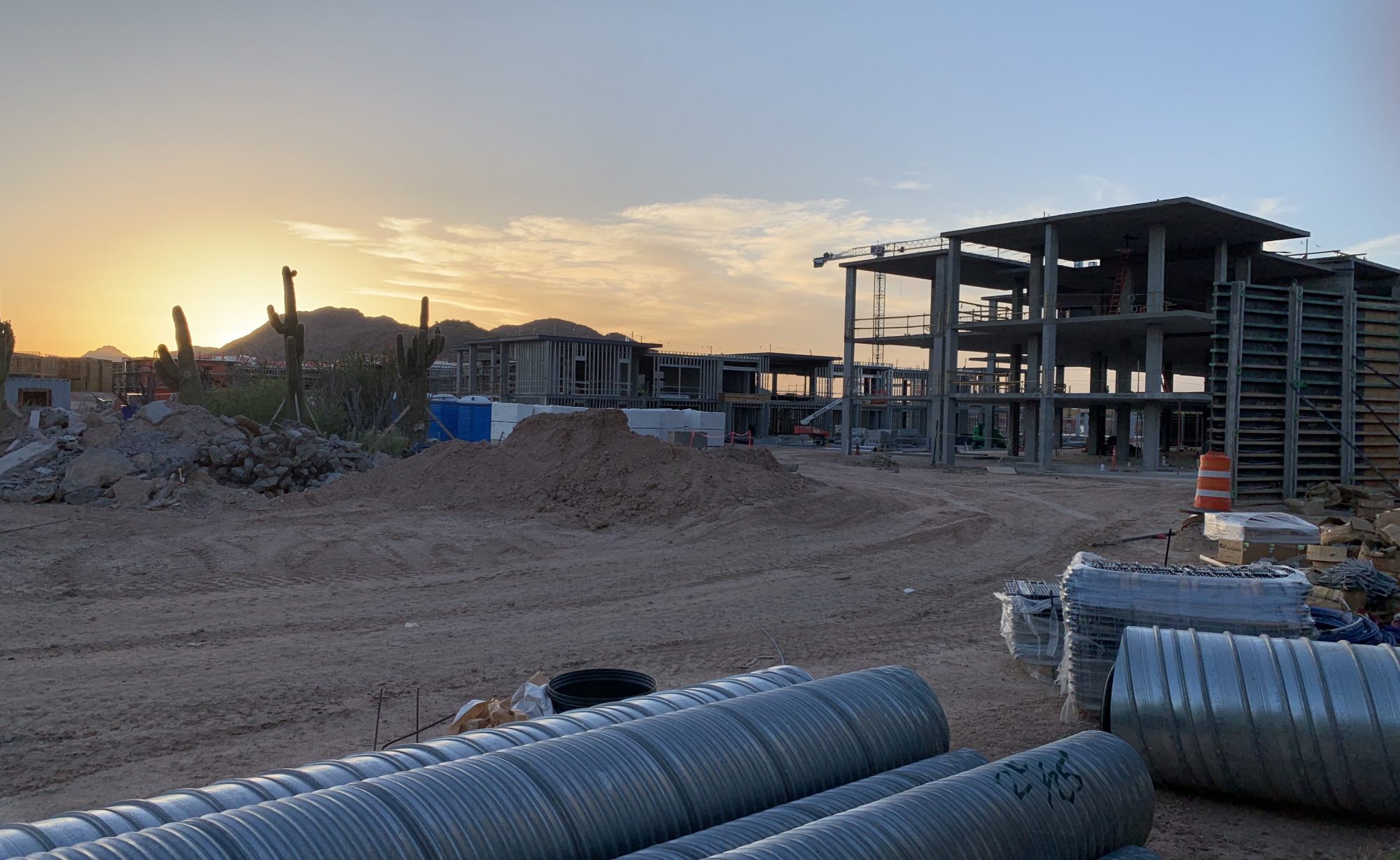
The nature and extent of COVID-19’s impacts on Arizona’s construction industry are currently unknown. It is, however, certain that there will be impacts. At the very least, many projects may be delayed. Thus, in order to prepare for what lies ahead, delay-related provisions in existing construction contracts and contemplated future contracts merit review and consideration. These include, but are not limited to, clauses covering the following:
Contract Time
The starting point for any delay claim is the contract provision specifying the performance period for the subject work. Typically, construction contracts will establish the performance period by: (1) specifying commencement and completion dates; or (2) setting forth a number of days within which the work must be completed after a notice to proceed is given.
Timing provisions may also declare that “time is of the essence.” For a more detailed analysis of the import of this language, please see my earlier post here. Generally speaking, however, it is aimed at making time a material element of the contract, which is an important consideration in a delay analysis.
Delays/Force Majeure
Construction delays can, at the most fundamental level, be categorized into two groups—nonexcusable delays and excusable delays. Contractors are usually not permitted to recover additional time or money for nonexcusable delays. Excusable delays, on the other hand, can be further broken down into the following two sub-groups—compensable excusable delays and noncompensable excusable delays. Compensable excusable delays typically entitle contractors to recover additional time and money, whereas noncompensable excusable delays generally only permit the recovery of time.
Where a particular delay, including a COVID-19 delay, falls on this spectrum will, for the most part, be dictated by the parties’ contract. It is, therefore, critical to find and analyze all contract provisions covering delay. In doing so, it is important to keep in mind that: (1) delay clauses come in different shapes and sizes; and (2) various types of contract provisions can touch on delay. For instance, some contracts address unforeseen delays (which may be applicable in the context of COVID-19) in what are identified as “force majeure” clauses. “Force majeure” is a French phrase that means “superior force,” and these provisions typically attempt to excuse parties from liability where contractual performance is rendered difficult or impossible by events beyond their control (i.e., war, acts of God, severe weather, and strikes and other labor related issues). Other contracts, like the AIA A201-2017, cover some of these same concepts in general “Delay” provisions, without any reference to the phrase “force majeure.” Generally, these types of delays are excusable but noncompensable.
Notice/Claims
It is also necessary to locate and understand notice and claims provisions in agreements. Most construction contracts mandate that contractors provide written notice of delay-causing events within a specified amount of time after occurrence. Written notice can be a prerequisite to asserting claims for additional time and/or compensation, and failure to timely provide notice can result in a waiver of rights. Moreover, notice provisions can place additional requirements on contractors. Among other things, these clauses may call for certain parties to be copied on notices and/or particular delivery methods. If, after notification, disagreement exist as to whether delay-causing events warrant additional time or money, claims provisions within construction contracts may also attempt to impose time limitations and other conditions on seeking such relief.
Suspension of Work/Termination
Finally, clauses covering suspension of the project and/or termination should be reviewed. Construction contracts often give the owner the right to suspend work. But the effects of suspensions can vary. Typically, suspension is a compensable excusable delay, entitling the contractor to additional compensation and time, if the project resumes. If, however, a project remains dormant for a specified amount of time, these clauses may entitle a contractor to terminate the contract and recover additional compensation.
Conclusion
In sum, the uncertainty created by COVID-19 warrants careful scrutiny of existing and prospective construction contracts. Among other things, parties need to pay special attention to the above delay-related clauses. If a particular contract does not contain a force majeure clause or otherwise provide for such delays, parties may, nevertheless, have rights under the common law and should consult with an attorney. Having a clear understanding of their rights and obligations, will allow parties to best address and mitigate the impacts of COVID-19.
